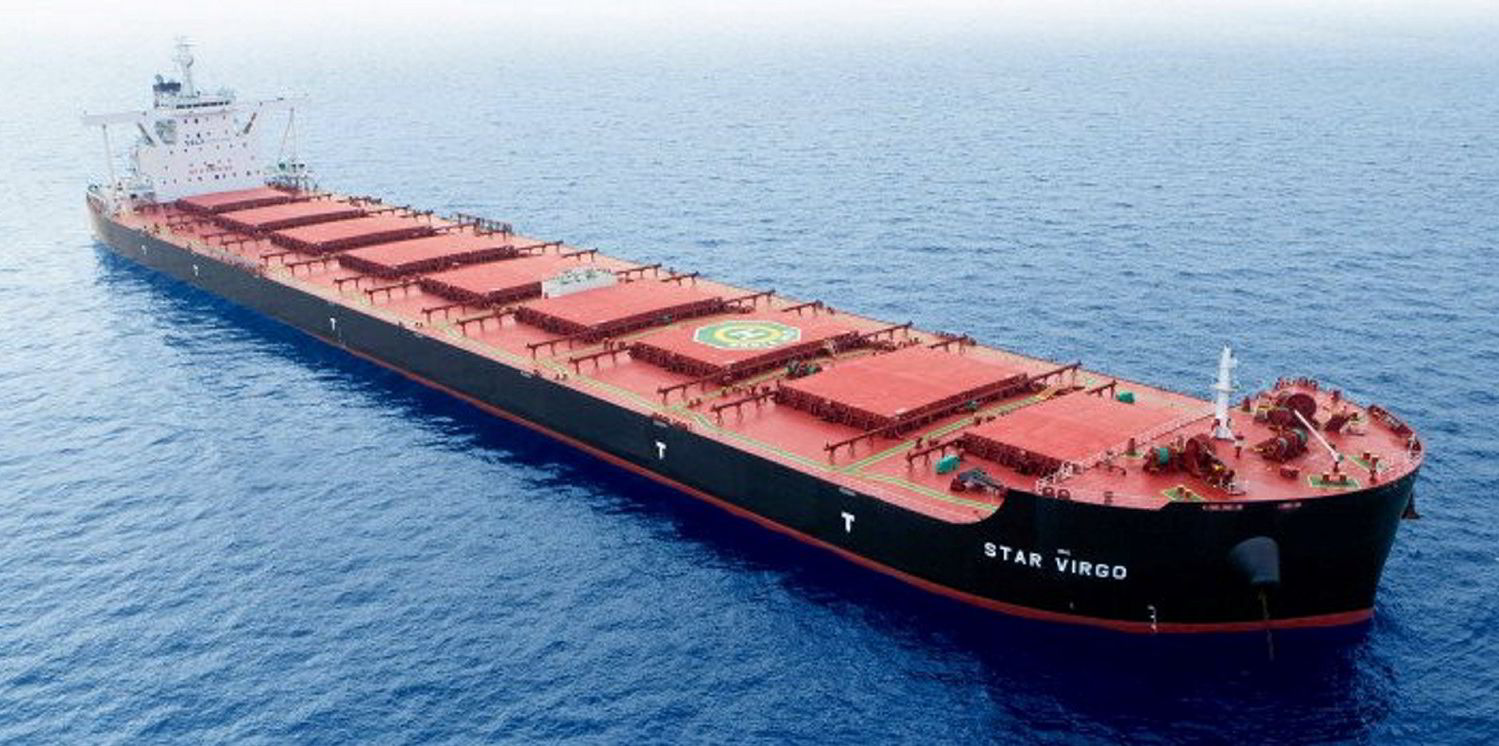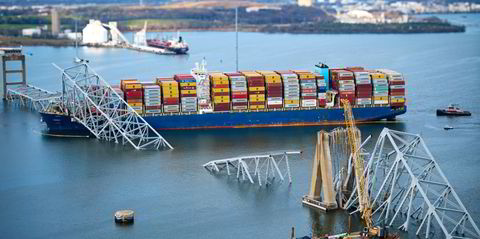Greece’s Star Bulk Carriers has some growing to do.

A version of this story appeared in Joe Brady's Streetwise newsletter on ship finance. Sign up at tinyurl.com/twstreetwise.
Now that may sound strange given that the New York-listed shipowner is already dry bulk’s greatest consolidator, already operating 128 vessels and already boasting a market capitalisation of $2.6bn.
That sounds pretty good until one considers a point raised this week by Star Bulk president Hamish Norton, who had a long career as an investment banker before assuming his current role.
Norton told a webinar sponsored jointly by the Greek and Norwegian chambers of commerce in New York that the average size of a company within the Russell 2000 – the benchmark index of US-listed “small cap” stocks – is $3.8bn.
“There aren’t too many shipping companies that are worth $3.8bn,” Norton said. “There aren’t too many shipping companies that are at $3.8bn at the top of the cycle, let alone at the bottom.
“That’s our ambition when we grow up. We want to be solidly mid-cap at the bottom of the cycle.”
It would be smart not to write Star Bulk off. The Petros Pappas-led bulker owner has amassed about half of its current vessel count over the past three years by acquiring a series of company fleets.
Since 2018, Star has struck successive deals with Songa Bulk, Augustea Atlantica, ER Capital, Delphin Shipping and Scorpio Bulkers, each time acquiring either a full fleet or, in Scorpio’s case, a seven-vessel chunk.
Each time Star has used a blend of its own shares alongside cash as payment, with Songa Bulk’s Arne Blystad and Augustea’s Italian Raffaele Zagari joining the Star board.
Taking stock
“The sellers wanted to take our shares,” Norton said. “In order to do a deal like that, you need to have a share that people want.”
With Star shares trading near a 52-week high, Star’s market cap is the largest it has ever been.
And still there are miles to go to reach Norton’s standard of a $3.8bn value in a low market.
A look at the roster of US-listed shipowners shows that most have even further to travel.
Star Bulk ranks fourth of the 29 New York-listed shipowners covered by investment bank Jefferies. The list is led by rampaging Israeli liner operator Zim at $8.7bn, followed by container ship-heavy lessor Atco at $4.2bn and US-flag owner Kirby at $3.9bn.
Another surging container ship lessor, Danaos, rounds out the top five at $2bn. The largest tanker company is Euronav at $1.9bn.
Most below $1bn
Still, only nine of the 29 in the Jefferies group top the $1bn mark, and the valuations get as small as LPG operator StealthGas at $78m. A few others outside Jefferies coverage – Flex LNG, Matson, Costamare and Golden Ocean Group– also top $1bn.
So why does any of this matter?
“With the majority of the public shipping companies trading at sub-$1bn market caps, the investor audience is greatly narrowed, with a heavy bent toward retail,” said veteran Evercore ISI analyst Jonathan Chappell.

“It’s all about marketing to a bigger audience, getting more widespread institutional interest, and enabling investors to take, and exit, large positions. And a vast majority of the market caps today do not check those boxes.”
Still, Clarksons Platou Securities analyst Omar Nokta sees some progress toward what he recalled as the vision laid out by former Euronav chief executive Paddy Rodgers: that public tanker companies reach $5bn in good times and stay above $1bn in bad ones.

“We appear to be there now, which is nice,” Nokta said. “A couple of tanker companies have over $1bn market caps and we’re experiencing the toughest market for the sector in decades.”
The crown jewel in Star Bulk’s quest, Chappell reasoned, would be to reach the point where it’s actually included in the Russell 2000.
“It would open up the interest and liquidity substantially,” he said. “We’ve said many times that nobody needs to own a shipping stock because it’s not in anyone’s benchmark or index in a meaningful way.”
More ship finance news
- A top shipping investment banker who played a part in two major merger-and-acquisition deals in 2021 says there are more potential deals in the works this year, with his bank involved in three of them. Click here to read the story.
- A shipping-focussed hedge fund has moved out of its investments in gas and has been buying up shares in bulker companies. Click here to read the story.
- Genco Shipping & Trading is hoping that an enhanced quarterly dividend about to be unveiled in this earnings season will help it close a valuation gap on its dry-trade peers. Click here to read the story.




